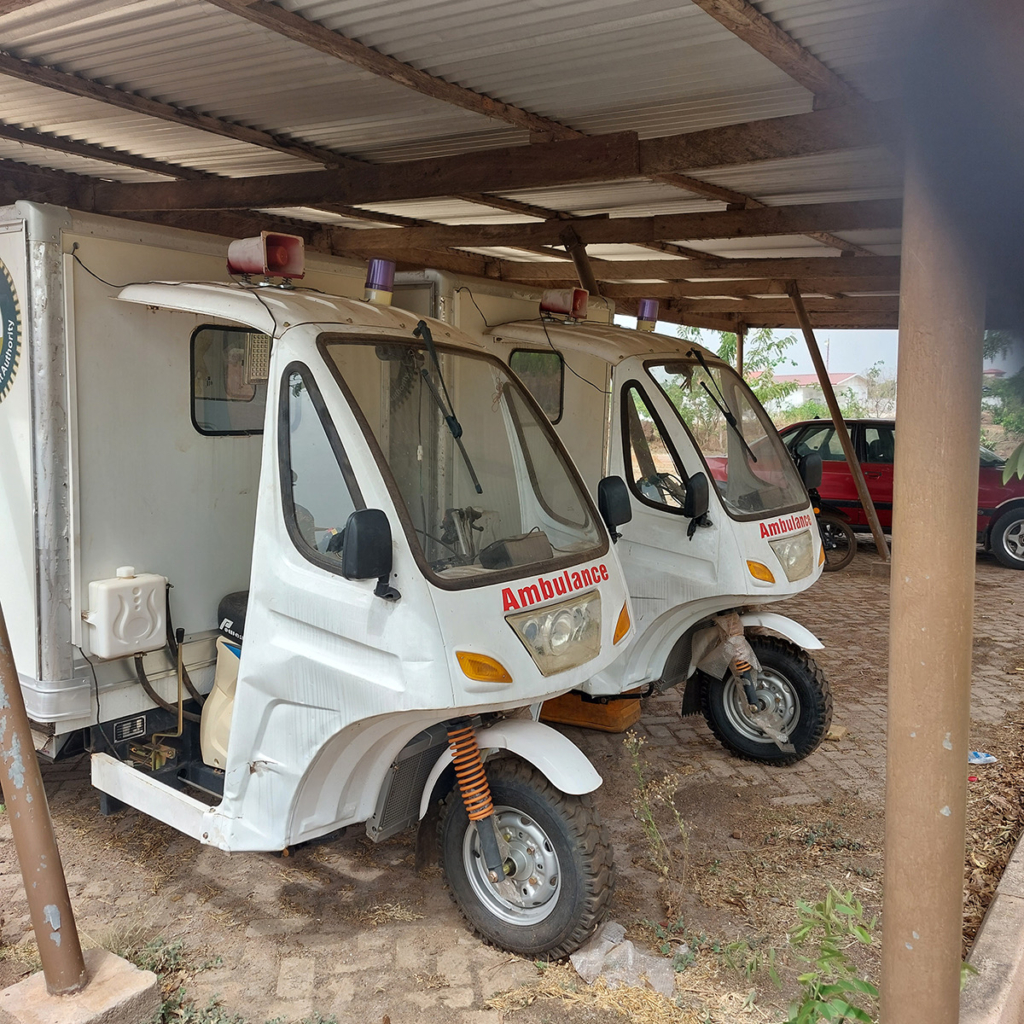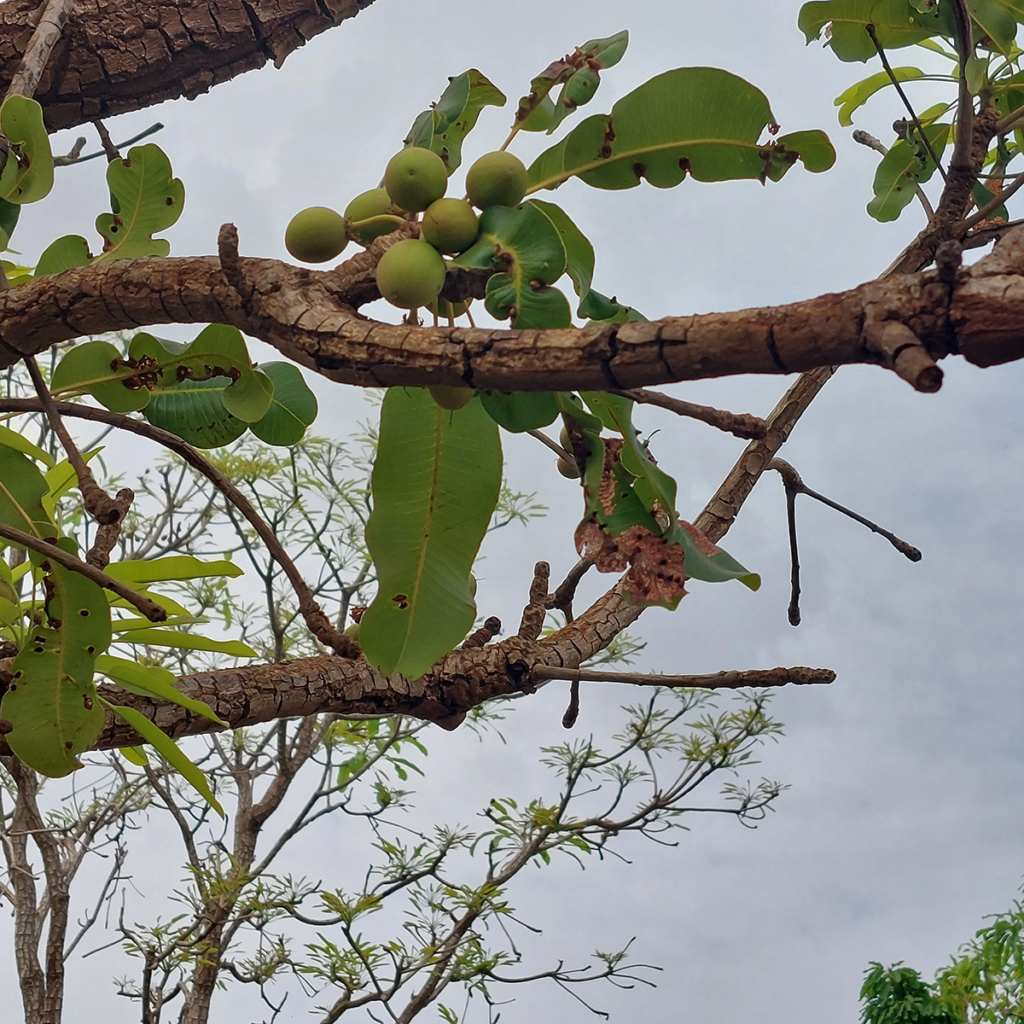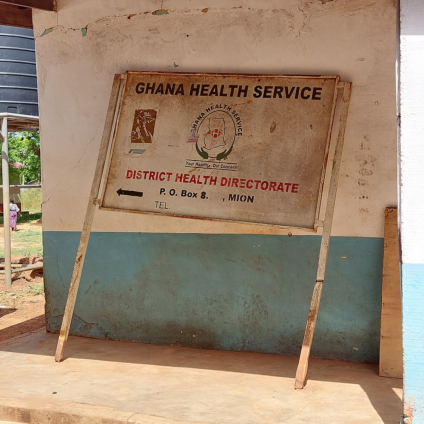Climate change is threatening the long-term survival of rural African communities, leaving them unable to grow essential crops and unable to access healthcare due to extreme heat or rainfall.
Researchers from the University of Southampton in the UK and the University for Development Studies in Ghana have found that communities report how this situation has significantly worsened in the last five years.
They are calling for urgent intervention to secure their health and future. The University of Southampton, Ghana Ministry of Health and PACKS Africa are co-hosting a summit in Accra, Ghana, on Tuesday 12 March to discuss the next steps.
The research team surveyed hundreds of people in the rural Mion district, in northern Ghana – with every person reporting some level of food insecurity, a lack of access to, or availability of, food. This is often caused by loss of crops or livestock, soil infertility, unpredictable seasonal changes, and pest or disease outbreaks.
The researchers defined food insecurity for over a quarter of respondents as ‘severe’.
Most people had also, on at least one occasion in the last year, been unable to reach their local health facility due to extreme weather conditions.
Jess Boxall, a Research Fellow at the University of Southampton, led the study. She said: “The results of our research are concerning, with entire communities reporting fears for their future food security.
"Our research was conducted in rural northern Ghana, but the findings are likely applicable to other Ghanaian communities – and across the African continent.
"Urgent short-term and long-term interventions are needed to give these communities a fighting chance.”

The research group has produced recommendations to policymakers, including:
• food aid programmes providing varied food (not just cereal products, as are currently provided) and storage solutions to protect food aid from flooding
• improving the transport infrastructure
• government intervention to diversify crops
• ensure ongoing health system revisions in Ghana consider access to health facilities
• education on climate change and climate-smart agriculture practices.
The threat to the availability of varied food leads to malnutrition, leading to additional problems.
Dr Michael Head, Senior Research Fellow in Global Health at the University of Southampton, explained: “Malnutrition increases the risk of infection, and with mosquito-related diseases such as malaria and yellow fever both present in Ghana and likely to get worse with climate change, an adequate diet is vital to support the immune system and improve immune response to vaccination.”
Dr Victor Mogre, Associate Professor at the University for Development Studies in Ghana and Visiting Academic at the University of Southampton, said: “In northern Ghana, where food insecurity is already severe, climate change worsens the situation by increasing the likelihood that vulnerable populations, including children, pregnant women, and lactating mothers, will become malnourished.
"This can result in a cycle of malnutrition that spans generations, diminishes productivity, and yields unfavourable economic consequences. Integral to this strategy should be the promotion of climate-smart agriculture awareness among subsistence farmers and the dissemination of nutrition education to the general public regarding the importance of consuming adequate, diversified diets, particularly among vulnerable groups.”

Climate change summit
The researchers are holding a live-streamed summit – Addressing Climate Change and Health – in Accra, Ghana, on Tuesday 12 March 2024.
The event will bring together ministers, charities, academics, industry, health service providers and NGOs to raise awareness of the urgency of the climate change impact on West Africa.
Keynote speakers will include Dr Wisdom Atiwoto, from the Ghana Ministry of Health, and the summit will be chaired by Professor Lydia Aziato, Vice Chancellor of Ghana’s University for Health and Allied Sciences.
Latest Stories
-
Ecobank-JoyNews Habitat Fair enters Day 2 with strong turnout
48 minutes -
Gold Board initiative yields $3 billion economic boost in 4 months – Kwakye Ofosu reveals
3 hours -
Kwakye Ofosu reveals money saved from paid TV ban at Jubilee House
4 hours -
14 Years of production: Ghanaians see oil as neither blessing nor curse — Research
4 hours -
Judge orders Columbia student Mahmoud Khalil released on bail
5 hours -
Dr. Peter Terkper declares GNAFF Presidency bid with bold vision
5 hours -
Teenage pregnancy declines in Akatsi North as leaders call for sustained action
6 hours -
NIB, NACOC destroy $350m worth of cocaine following court order
7 hours -
Keta-Akatsi Catholic Diocese honours health workers at 33rd World Day of the Sick
7 hours -
Suspect arrested for burglary and theft at Kasoa Nyayano
7 hours -
US resumes visas for foreign students but demands access to social media accounts
7 hours -
Indian High Commission collaborates with VRCC and UHAS to champion physical, mental wellness in Volta Region
7 hours -
This Saturday on Newsfile: Galamsey fury, NPP early primaries and effects of Israel-Iran war
8 hours -
African Heads of States, Caribbean and Global Business Leaders to gather in Abuja Nigeria for 32nd Afreximbank annual meetings
9 hours -
GES, Brilliant Educational Consult train teachers in Kumasi to boost their competencies
9 hours

